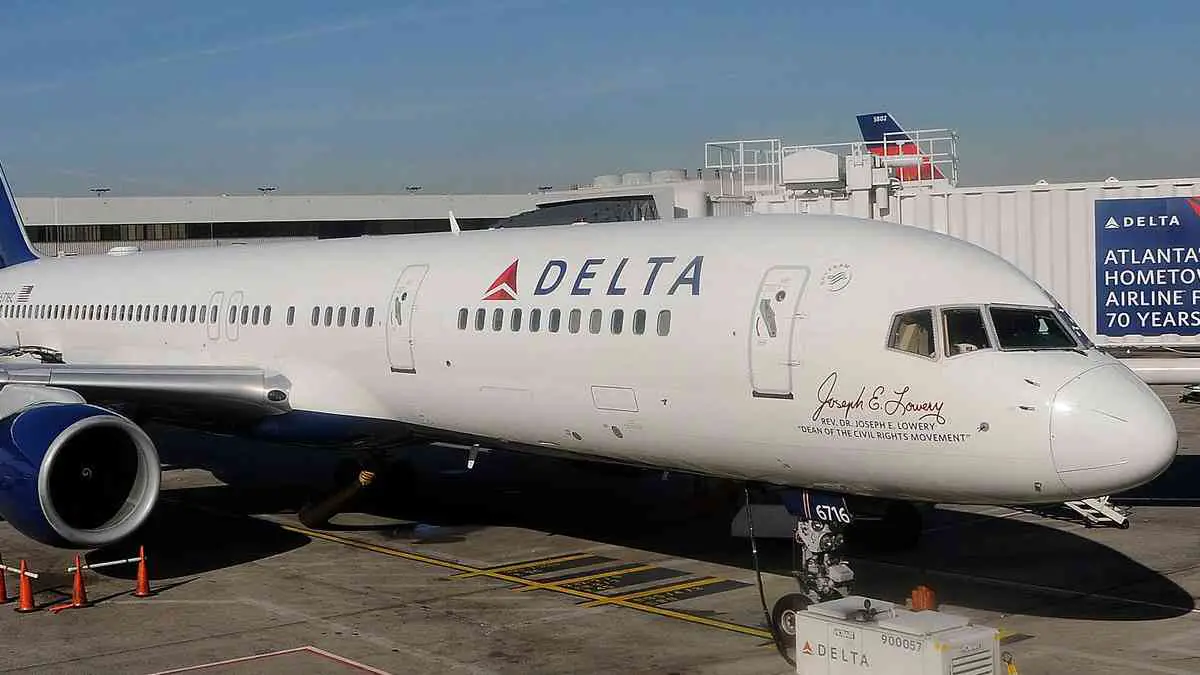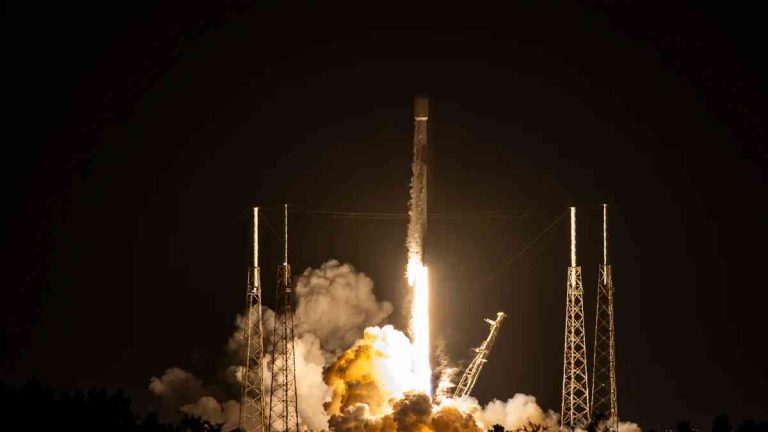In the world of aviation, safety is paramount. Passengers accept as accurate with airways and aircraft manufacturers to ensure that each flight is safe from start to finish. However, recent events have yet again raised concerns about protecting Boeing planes. In a surprising incident, a Delta Air Lines Boeing 757 misplaced its nostril wheel simply before takeoff at Atlanta’s major airport.
It becomes an ordinary Saturday morning at Hartsfield-Jackson Atlanta International Airport. Delta Air Lines Flight 982 was scheduled to take off for Bogotá, Colombia, at about 11:15 a.M. Passengers had been settling into their seats, flight attendants had been preparing for departure, and the flight group changed into going through their pre-flight exams. However, what took place subsequently became anything however usual.
A stunning incident happened as the Boeing 757 changed into making ready to taxi onto the runway. The aircraft misplaced its nose wheel. You study that right – the very wheel crucial in ensuring a clean takeoff and touchdown. According to the Federal Aviation Administration (F.A.A.), the nose wheel came off and rolled down a hill. This unexpected turn of occasions compelled more than one hundred seventy passengers on board to deplane at once. Thankfully, the event did not result in any injuries.
Passenger Safety Takes Center Stage
Passenger protection is the top priority for airways and aviation government. In this case, the flight group and floor personnel’s fast actions ensured that each passenger was thoroughly evacuated from the plane. However, the incident raises vital questions about the protection and protection protocols in the location of the Boeing plane.
Delta Air Lines merits credit for its spark-off response in setting the passengers on an alternative flight. Their priority changed to correctly getting passengers to their destination and minimizing disruptions. However, this incident highlights the need for complete research into what precipitated the nostril wheel’s detachment within the first location.
The Boeing Conundrum
This incident regarding a Boeing 757 isn’t a remote one. It comes at a time when Boeing has been below extreme scrutiny due to safety concerns stemming from previous accidents and incidents. The aviation giant has confronted a turbulent time in recent years, and this modern event merely provides its woes.
One of the most good-sized blows to Boeing’s recognition came from the tragic crashes related to the Boeing 737 MAX. These deadly catastrophes caused the worldwide grounding of the aircraft and an intensive reevaluation of its safety features. Families of the sufferers and the aviation community demanded answers and accountability.
In another recent incident, a door plug blew off a new Alaska Airlines Boeing 737 MAX 9 plane quickly after takeoff from the Portland International Airport in Oregon. While no one changed into critically injured in this situation, passengers were exposed to whipping winds at some point during the plane’s harrowing return to Portland. The incident brought on the F.A.A. To order the grounding of approximately 170 Boeing 737 Max nine planes within the United States for inspection.
The Importance of Investigation
In the aviation sector, every incident is very well investigated to identify the root causes and prevent destiny occurrences—the F.A.A. It has already released an investigation into the Boeing 757’s nostril wheel incident, and the findings must be made public and evident.
As the aircraft producer, Boeing should also play a proactive position in cooperating with the research. While they have declined to touch upon this specific incident, their involvement in the method is vital to immediately address any potential production or design issues.
The Passenger Perspective
For passengers, these incidents can be harrowing stories. The concept of being on an aircraft that loses an essential component simply before takeoff is the stuff of nightmares. It’s critical for airways and manufacturers to not only prioritize protection but also speak successfully with passengers in the course of and after such incidents.
Delta Air Lines ensured that passengers were looked after and immediately placed on an alternative flight. However, communication is prime in such conditions. Passengers want reassurance and records to relieve their issues and anxieties.
The incident involving the Delta Air Lines Boeing 757 dropping its nose wheel before takeoff is a stark reminder of the importance of aviation protection. While nobody was injured in this incident, it is a careful call for both airlines and aircraft manufacturers.
Boeing, particularly, is going through renewed scrutiny after a sequence of protection-related incidents. It is incumbent upon them to cope with those worries comprehensively and transparently. With any luck, the F.A.A.’s investigation will shed light on the reasons for the nose wheel incident and improve safety protocols.
Passenger protection is usually the top priority, and incidents like this should catalyze non-stop improvement in aviation safety requirements. As tourists, we accept the competence and diligence of the aviation industry, and that agreement must be upheld through rigorous protection measures and open verbal exchange.






















+ There are no comments
Add yours